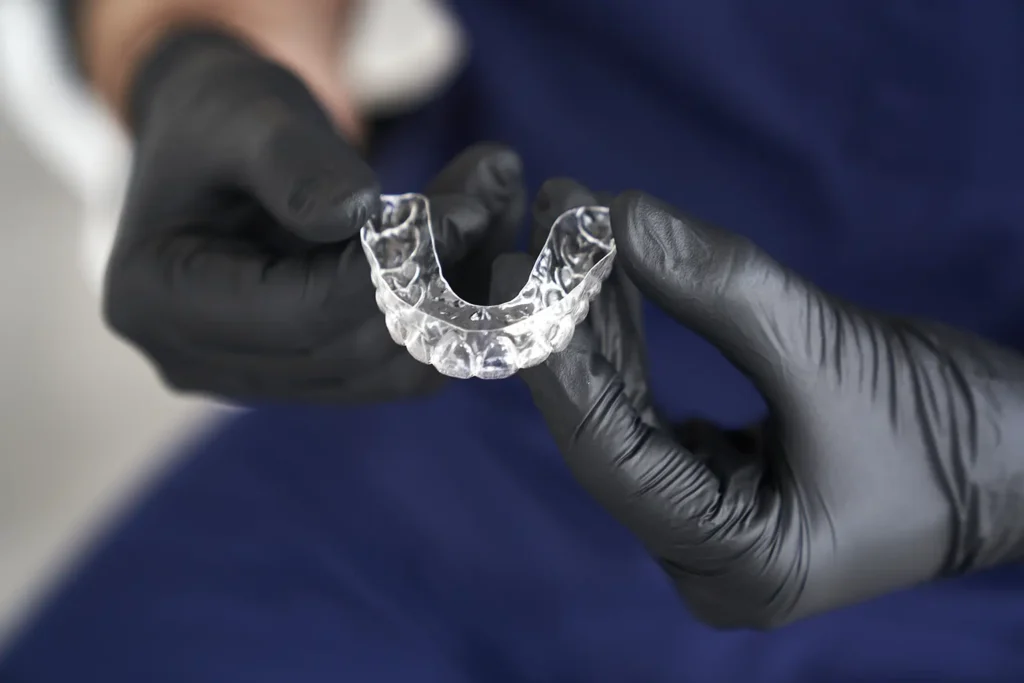
Why do my teeth hurt when I bite down? If you’ve ever asked yourself this question, you’re not alone. Teeth sensitivity is a common issue that affects a significant number of people at some point in their lives. This discomfort can range from a minor annoyance to a severe problem that impacts your daily life. In this article, we will delve into the causes and remedies of tooth discomfort, focusing on teeth sensitivity, and provide helpful information to alleviate your concerns.
What is Teeth Sensitivity?
Teeth sensitivity, also known as dentin hypersensitivity, occurs when the inner layer of the tooth, called dentin, becomes exposed. This exposure can cause sharp, temporary pain when your teeth come into contact with certain stimuli such as cold, heat, sweet, or acidic foods and beverages, and even when biting down.
Causes of Teeth Sensitivity
Understanding the root cause of your teeth sensitivity is the first step in addressing the discomfort. Several factors can contribute to why your teeth hurt when you bite down:
Tooth Decay and Cavities
- Cavities are one of the most common reasons for tooth pain. When bacteria break down the enamel and dentin, it can expose the nerves inside the tooth, causing sensitivity and pain, especially when biting down.
Gum Recession
- Gum recession exposes the roots of your teeth, which are not protected by enamel. This can lead to increased sensitivity and pain when you bite or chew.
Cracked or Fractured Teeth
- A cracked tooth can cause pain when pressure is applied, such as when biting down. Even a small crack can lead to significant discomfort and should be examined by a dentist.
Worn Enamel
- Enamel is the hard outer layer of your teeth that protects the inner layers from damage and decay. Over time, enamel can wear down due to factors like aggressive brushing, teeth grinding (bruxism), or consuming acidic foods and drinks. When enamel is worn away, the dentin underneath is exposed, leading to sensitivity.
Dental Procedures
- Recent dental work such as fillings, crowns, or whitening treatments can sometimes result in temporary sensitivity. This is usually due to the irritation of the nerves during the procedure.
Sinus Infections
- Interestingly, sinus infections can cause pain in your upper teeth. The pressure from the sinuses can mimic tooth pain, leading to sensitivity when biting down.
Bruxism (Teeth Grinding)
- Grinding or clenching your teeth, often during sleep, can wear down the enamel and expose the dentin, leading to sensitivity and pain.

Remedies for Tooth Discomfort
Once you understand the cause of your teeth sensitivity, you can explore various remedies to alleviate the discomfort. Here are some effective treatments and preventive measures:
Proper Oral Hygiene
- Maintaining good oral hygiene is crucial in preventing tooth decay and gum recession. Brush your teeth twice a day with a soft-bristled toothbrush and fluoride toothpaste, and floss daily to remove plaque and food particles.
Use Desensitizing Toothpaste
- Desensitizing toothpaste can help reduce sensitivity over time. These toothpastes contain compounds that block the transmission of sensation from the tooth surface to the nerve.
Avoid Acidic Foods and Drinks
- Limiting the intake of acidic foods and beverages can help prevent enamel erosion. If you do consume them, rinse your mouth with water afterward to neutralize the acids.
Wear a Mouthguard
- If you grind your teeth at night, wearing a mouthguard can protect your teeth from further damage and reduce sensitivity.
Use a Soft-Bristled Toothbrush
- A soft-bristled toothbrush is gentler on your gums and enamel, reducing the risk of gum recession and enamel wear.
Visit Your Dentist Regularly
- Regular dental check-ups are essential in identifying and addressing dental issues early. Your dentist can provide professional treatments, such as fluoride applications or dental sealants, to protect your teeth from sensitivity.
Treatment for Gum Disease
- If gum disease is causing your teeth sensitivity, your dentist can perform deep cleaning procedures to remove plaque and tartar buildup below the gum line and promote gum healing.
Addressing Dental Damage
- For cracked or fractured teeth, your dentist can recommend appropriate treatments, such as bonding, crowns, or even root canal therapy, depending on the severity of the damage.
Sinus Treatment
- If a sinus infection is causing your tooth pain, treating the infection with decongestants, antihistamines, or antibiotics, as prescribed by your doctor, can alleviate the discomfort.
When to See a Dentist
While some tooth sensitivity can be managed at home, it’s important to know when to seek professional help. You should visit Legacy Smiles if:
- The sensitivity persists for more than a few weeks.
- The pain is severe or affects multiple teeth.
- You notice signs of tooth decay, such as visible holes or discoloration.
- Your gums are receding, swollen, or bleeding.
- You have a cracked or broken tooth.
- Over-the-counter remedies are not effective.
Preventing Future Sensitivity
Preventing teeth sensitivity involves maintaining a healthy oral care routine and being mindful of habits that can damage your teeth. Here are some tips to prevent future sensitivity:
Brush Gently
- Use gentle, circular motions when brushing your teeth to avoid damaging your enamel and gums.
Choose the Right Toothpaste
- Use a toothpaste designed for sensitive teeth that contains fluoride to help strengthen your enamel.
Limit Sugary and Acidic Foods
- Reduce your consumption of sugary and acidic foods and drinks, which can contribute to enamel erosion and tooth decay.
Stay Hydrated
- Drinking plenty of water helps maintain saliva production, which protects your teeth from decay and keeps your mouth healthy.
Avoid Teeth Grinding
- If you grind your teeth, consider stress management techniques and talk to your dentist about a mouthguard to protect your teeth.
Regular Dental Visits
- Schedule regular dental check-ups and cleanings to keep your teeth and gums healthy and catch any issues early.
Conclusion
Teeth sensitivity is a common issue that can cause significant discomfort, especially when biting down. By understanding the causes of tooth discomfort and implementing effective remedies and preventive measures, you can alleviate the pain and protect your teeth from future sensitivity. If you’re experiencing persistent or severe pain, it’s important to consult with your dentist to identify the underlying cause and receive appropriate treatment. At Legacy Smiles, we are dedicated to helping you maintain optimal oral health and address any concerns you may have about teeth sensitivity. Don’t let tooth pain impact your quality of life—take steps today to care for your teeth and enjoy a pain-free smile.

